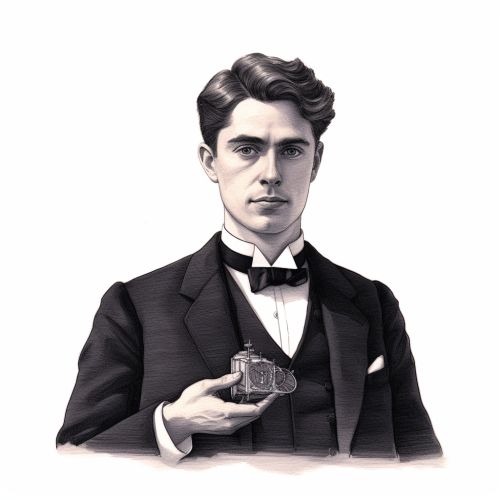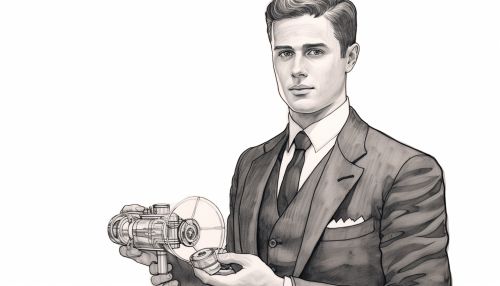Thomas Davenport
Early Life
Thomas Davenport was born in Williamstown, Vermont, on July 9, 1802. He was the son of a blacksmith and showed an early interest in mechanics. At the age of 14, he was apprenticed to a blacksmith and began learning the trade. He became a skilled blacksmith and opened his own shop in Brandon, Vermont, in 1823.
Discovery of Electromagnetism
In 1831, Davenport saw a demonstration of electromagnetism at the Penfield Iron Works in Crown Point, New York. He was fascinated by the concept and began experimenting with electromagnetism in his blacksmith shop. He used a battery to power an electromagnet, which he then used to operate a small model car on a circular track. This was the first known application of electromagnetism for motion, and it laid the groundwork for the development of the electric motor.


Invention of the Electric Motor
In 1834, Davenport invented the electric motor, a device that converts electrical energy into mechanical energy. He used his electric motor to power a small model car, demonstrating the potential of electric power for transportation. Davenport's electric motor was a direct current (DC) motor, which is a type of motor that runs on electricity from a battery or a direct current power supply.
Patent and Commercialization
Davenport received a patent for his electric motor in 1837, making him the first person to patent an electric motor in the United States. Despite the groundbreaking nature of his invention, Davenport struggled to commercialize his electric motor. He attempted to start a company to manufacture and sell electric motors, but the venture was not successful. However, his invention laid the foundation for the development of electric power and transportation.
Later Life and Legacy
Davenport continued to experiment with electromagnetism and electric motors until his death in 1851. His work was largely unrecognized during his lifetime, but his contributions to the field of electromagnetism and the development of the electric motor have been recognized by historians and scientists. Today, Davenport is considered a pioneer in the field of electromagnetism and is remembered for his invention of the electric motor.
